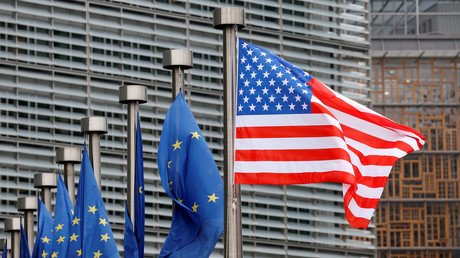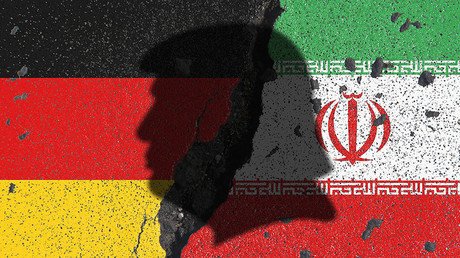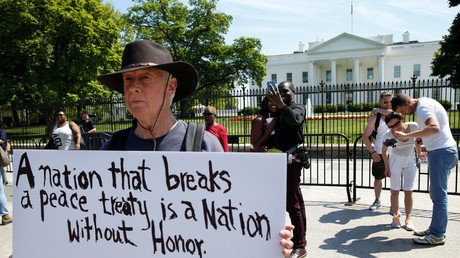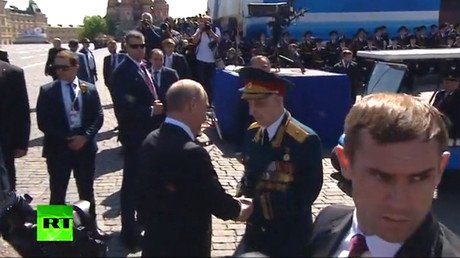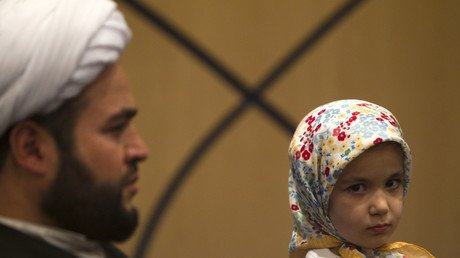Trump’s withdrawal from Iran nuclear deal gives Europe a choice: Become vassals or be independent
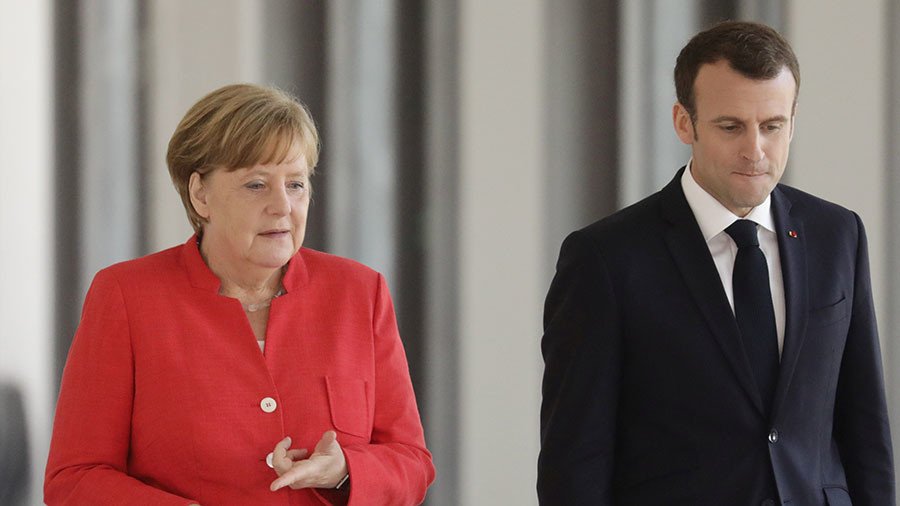
Donald Trump’s trashing of the Iran nuclear deal this week was not just an attack on Iranian sovereign interests. The US president was also poking European allies in the eye.
In abruptly withdrawing the US from the international nuclear treaty, Trump warned that his administration was preparing to re-impose harsh sanctions on Tehran, and that those sanctions would also hit European commercial interests in Iran.
The American president’s high-handed manner was to be expected towards Iran. He has constantly denigrated the Joint Comprehensive Plan of Action (JCPOA), signed in July 2015 by his predecessor Barack Obama, along with other members of the UN Security Council, Britain, France, Russia, China plus Germany. Trump’s contempt for Iran as an alleged state terrorism sponsor has also been relentless.
But what stood out more in his dismissal of the nuclear deal this week was Trump’s brazen disregard for European allies.
Britain, France and Germany, as well as the European Union as a bloc, have pleaded with Trump to stay in the JCPOA. Last month, French President Emmanuel Macron and German Chancellor Angela Merkel both made separate visits to the White House to appease Trump and his threats to rip up the accord.
Trump’s unilateral abrogation of the international treaty not only shows disdain for European concerns. Moreover, the accompanying warning of American penalties on European firms doing business with Iran is a devastating illustration of Washington’s bullying attitude. Do as we say, or feel pain.
Within hours of Trump torpedoing the Iran deal, his hawkish National Advisor John Bolton was telling European companies they were on notice to cancel investment plans in Iran. The threat was reiterated by the new US ambassador to Germany, Richard Grenell, who bluntly admonished German firms to “immediately” start winding down business operations in Iran.
The boorish manner of the Trump administration left European politicians shell-shocked as the facade of transatlantic “partnership” was torn down.
European Commission President Jean-Claude Juncker said it was time for the EU to “replace the United States” and show international leadership.
Defending the nuclear accord, Germany’s Merkel also said Europe must take its destiny into its own hands as the US can no longer be relied upon.
The New York Times reported that “Trump had humiliated Europe” and “transatlantic relations are in trouble.”
In a Der Spiegel commentary, the EU was urged to “stand up to the United States.” It added: “The US has chosen a path of confrontation with Europe… In the seven decades of the postwar transatlantic relationship there has never been such a violation of European interests.”
What it comes down to is this: the US is asserting its national interests over Europe’s at the expense of the Europeans.
From the three-year-old Iran nuclear accord, it has become clear that American and European interests have significantly diverged. While the US barely adhered to the deal, maintaining non-nuclear sanctions on Iran, the Europeans by contrast embraced renewed commercial ties with the Islamic Republic.
Major European firms, including Airbus, Britain’s Royal Dutch Shell, France’s Total, and Germany’s Volkswagen group have multi-billion-dollar investment plans lined up with Iran.
However, Washington’s ideological hostility towards Iran is not just a bilateral matter for the Americans. It presumes to dictate Europe’s relations with Iran too, and if the Europeans don’t comply, then they face economic reprisals.
French Economy Minister Bruno Le Maire voiced the exasperation felt across Europe over Trump’s attitude. “It is unacceptable for the US to act like the world’s economic policeman.”
Wolfgang Ischinger, the former German ambassador to the US, pointedly asked: “Is the transatlantic alliance dead?” in light of the fact that Washington’s decision on pulling out of the JCPOA had unilaterally snubbed Europe’s interests.
It’s not just a matter of economic concerns – huge that they are. It’s also a matter of security. The Europeans are all too aware that Trump’s violation of the Iran nuclear deal is fueling greater instability and conflict in the Middle East. Europe has much more to lose if a new war breaks out between Iran and its foes in Israel and Saudi Arabia. The already-strained EU can hardly withstand another wave of refugees from conflict in the region.
There is also the by-now well-established pattern of American indifference towards European strategic needs. The walking away from the nuclear accord is just one more slap in the face from the US in a long list of slaps, ranging from imposing trade tariffs, to riding roughshod over energy security in Europe’s dealings with Russia and the Nord Stream pipeline.
Ivo H Daalder, former US envoy to NATO, was quoted as saying: “At some point – after having pushed the Europeans on NATO, Paris [climate accord], the Jerusalem embassy move, trade and now Iran – the Europeans will come to the conclusion that they’re better off going their own way. And that point is rapidly approaching.”
Arguably, the so-called transatlantic alliance has always been overblown as a supposedly mutual balance of interests. Frankly, the US has simply used European “allies” for its strategic objectives, whether in prosecuting illegal wars for natural resources, or in thwarting Russia and China as geopolitical rivals.
What the debacle over the Iran nuclear agreement exposes is just how irrelevant European vital interests are to Washington. The latter wants regime change in Tehran come hell or high water, and to hell with European concerns.
The EU faces a moment of truth. It needs to assert its strategic interests over Washington’s bullying by defending the Iran nuclear deal. In order to do that, the Europeans will have to join with Russia and China in establishing new financial and legal infrastructure to protect its trade with Iran from American sanctions. That inevitably will entail conducting more international business without the US dollar.
That process of displacing the dollar as the international reserve currency is well underway due to Russia, China and Eurasian economic integration. The Europeans need to delink from American financial hegemony and join the rising tide for a multipolar world.
It remains to be seen if the Europeans will in fact stand up to Washington’s dictate over the Iran deal. So far, they have asserted the sanctity of the treaty, along with Russia and China.
Iran has given Europe a limited time to deliver on assurances that it is committed to the accord by pursuing economic cooperation plans. If not, then Iran says it too will walk away from the JCPOA, which will ramp up even more insecurity in the region.
Europe has for too long been humiliated by Washington as nothing more than a collection of vassals. This harks too to the way European-Russian relations have long been distorted and beleaguered by Washington’s hegemonic ambitions.
This time though could prove a watershed. The stakes for European vital interests in having normal relations with Iran are much higher than before. Trump’s bullying over the Iran deal could turn out to be Washington’s last throw of the dice in trying to maintain its fantasy of unipolar dominance.
For the sake of world peace and its own security, Europe has to cast off the transatlantic shackles and let them sink.
Think your friends would be interested? Share this story!
The statements, views and opinions expressed in this column are solely those of the author and do not necessarily represent those of RT.

